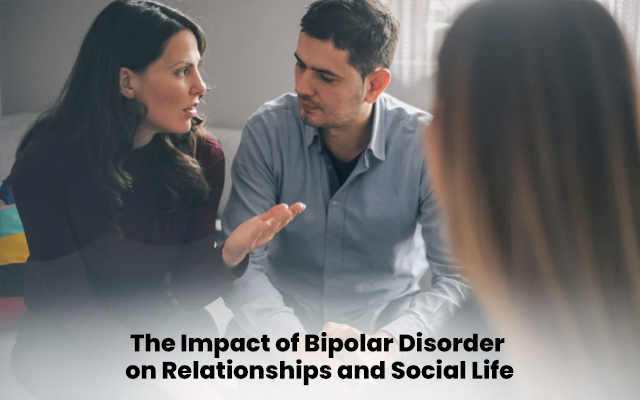Bipolar disorder is a mental health condition characterized by extreme mood swings that can significantly affect a person’s life. Those with this disorder often experience periods of emotional instability, shifting between intense highs (mania) and deep lows (depression). By understanding how bipolar disorder affects relationships and social life, you can help those who need it.
Understanding Bipolar Disorder
People with bipolar disorder experience dramatic changes in mood, energy, and activity levels. During a manic phase of this psychological disorder, they might feel too happy, full of energy, and brimming with ideas. It’s a time when they might want to engage in numerous activities and feel invincible.
However, this high is often followed by a depressive phase, where individuals may feel sad, hopeless, and lethargic. During this time, they may struggle with concentration, lose interest in daily activities, and have a negative outlook on life.
Symptoms of Bipolar Disorder
The symptoms of bipolar disorder include:
- Manic Phase:
- Happy mood and increased energy
- Overly enthusiastic or overly ambitious behaviour
- Impulsivity and risk-taking tendencies
- Depressive Phase:
- Persistent feelings of sadness or hopelessness
- Difficulty concentrating or making decisions
- Low energy and fatigue
- Loss of interest in activities once enjoyed
These mood swings leads to periods of emotional instability, making it challenging to maintain consistent relationships and a balanced social life.
Effects on Relationships
Bipolar disorder has a deep impact on relationships. Here are some ways it can affect personal connections:
- Frequent Arguments: The emotional ups and downs can lead to misunderstandings and conflicts, resulting in frequent arguments with loved ones.
- Intimacy Issues: During manic phases, individuals may seek intimacy and connection, while during depressive episodes, they may withdraw and become uninterested.
- Negatively Affects Work Life: The disorder interferes with job performance, leading to stress in professional relationships and potential job loss.
- Impact on Children: For parents with bipolar disorder, their children may face difficulties as they struggle to understand the parent’s mood changes. Kids might have trouble concentrating in school due to the continuous fights and negativity at home.
- Deteriorating Physical Health: The highs and lows can also take a toll on physical health, leading to exhaustion and other health issues, which deteriorate relationships further.
Conclusion
Bipolar disorder is not just a personal struggle; it affects those around the individual as well. By understanding the symptoms and impacts of this condition, we can stay empathetic and provide better support to those living with this psychological disorder.
If you feel any of your close ones or any person you know is suffering from this psychological disorder, consult our psychologists.

